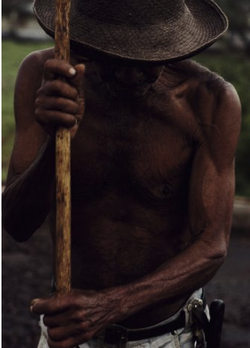The National | 20 March 2011
Andrew Downie
One of the first things disembarking passengers see at Cuiaba airport in central Brazil is a property advertisement offering arable land to foreigners.
Brazil is booming, and the region around Cuiaba is one of the hugely fertile areas that have helped this South American giant become the world's biggest producer or exporter of beef, chicken, coffee, sugar cane, orange juice and tobacco.
But now Brazil is questioning whether selling land to foreigners is such a good idea. With nations such as China eyeing property all over the world, and with worries over food security growing, the Brazilian government wants to protect its land and is discussing tightening laws that would make it harder for foreigners to purchase it.
A number of white papers that review the 1971 legislation stipulating how much land foreigners can own are awaiting debate in Congress. The current law limits purchases to a certain number of modules of between 5 and 100 hectares, depending on the region.
Individuals buying between 3 and 50 modules must get written permission from the country's land reform institute, and those buying more than 50 modules must get permission from Congress. Companies purchasing more than 100 modules must also receive congressional approval.
The law stipulates that no municipality can sell more than a quarter of its land to foreigners and that foreigners of the same nationality can own only one tenth of the land in any given municipality.
However, the land law, like many Brazilian laws, is poorly written - some might say deliberately so - thus allowing succeeding administrations to interpret it differently.
The key issue is the meaning of "foreign". In the 1970s, companies from overseas were considered foreign even if their subsidiaries were Brazilian-based and Brazilian-run. They therefore faced restrictions when buying land.
In the 1990s, with Brazil struggling and in need of foreign investment, the government of the day ruled that Brazilian-based and Brazilian-run meant Brazilian, thus allowing firms to invest more easily.
Last year, with the economy booming and foreign currency reserves at an all-time high, the government said the original interpretation applied and put the brakes on outside land purchases. Foreigners are getting round that rule by partnering with locals whose names go on the title deed. Brokers in places such as rural Sao Paulo say that outside interest has doubled the price of fertile land over the past two years and that buyers still keep calling.
Buyers want land for grazing cattle; for growing grains, sugar cane and cotton; and for planting eucalyptus for timber and paper. Latin America is rich in such commodities, its grains, oil, biofuels and minerals helping China's boom.
Those products are increasingly important to the Brazilian economy, with just five commodities accounting for 43 per cent of the country's exports last year, compared with from 27 per cent in 2004.
Brazil's biggest concern is institutional buyers. It watched with trepidation as China bought up tracts of land in Africa, and news that three Chinese groups were interested in hundreds of thousands of hectares in Brazil's central plains and north-east prompted fearful warnings.
In Chile and Peru, which have vast reserves of minerals, and in Paraguay, a major soy bean producer, similar worries are being voiced.
Argentina, like Brazil a major producer of grains, is already taking steps. Cristina Kirchner, the president, last month announced she was preparing a bill to restrict the purchase of lands by foreigners. Foreigners already own 10 per cent of arable land there, according to Argentina's agrarian federation.
In Brazil, the foreign-ownership figure is much lower, officially at least. Foreigners own 1 just per cent of Brazilian land, although government officials believe the true total is perhaps as much as five times that because of under-reporting and front companies.
The issue for Brazil is how to keep that number manageable without stemming foreign investment or ruffling feathers. Ads that are less beguiling than the one in Cuiaba airport might be a start. Or, at least, ensuring none appear in Mandarin.
[email protected]














